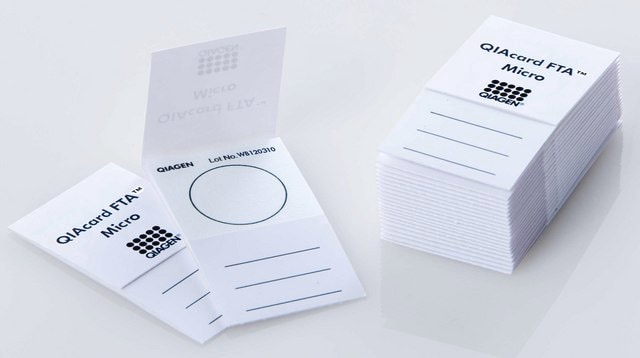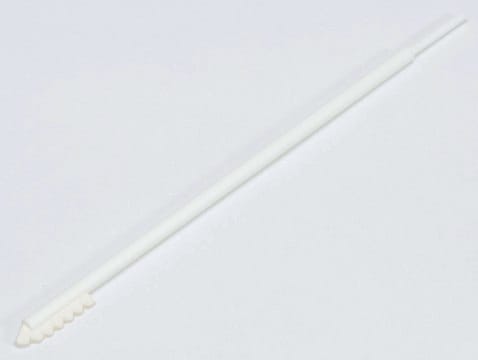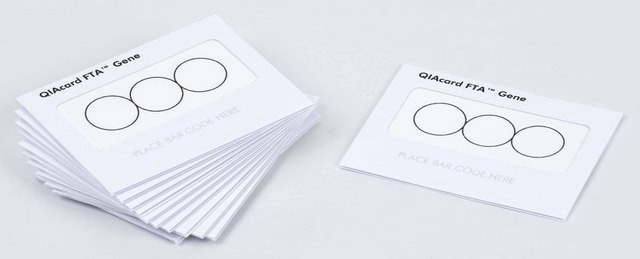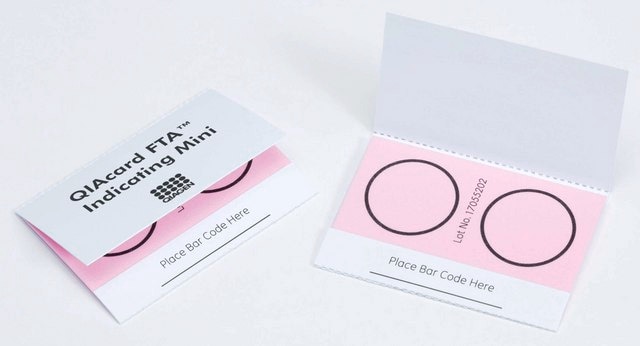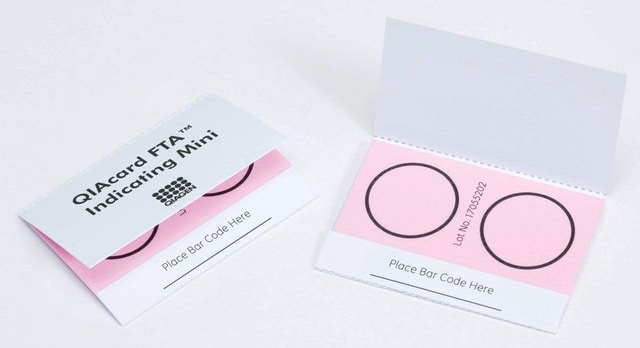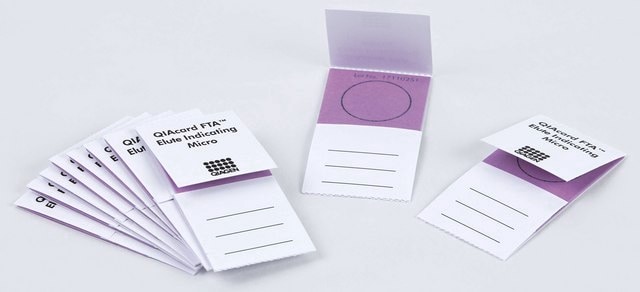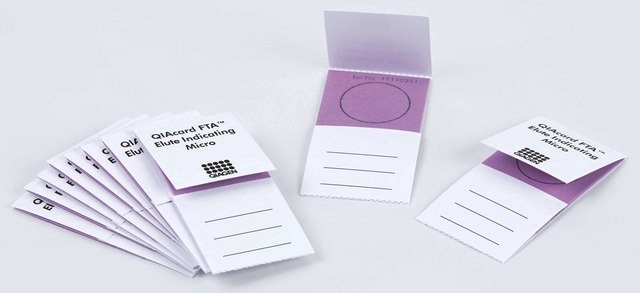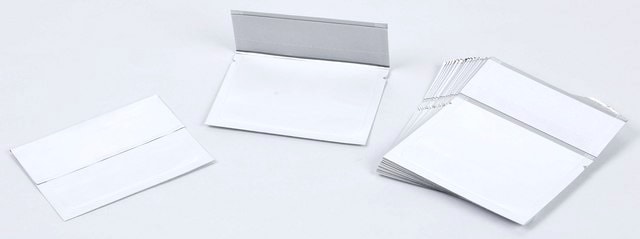WHAWB120210
QIAcard™ Non-Indicating FTA™ Cards
micro, 1 sample area per card, pkg of 100 cards
Synonym(s):
QIAcard™ FTA™ Micro (100), Whatman FTA, Z719773, whatman fta cards
Sign Into View Organizational & Contract Pricing
All Photos(2)
About This Item
UNSPSC Code:
41105500
NACRES:
NB.22
Recommended Products
description
FTA micro card with 1 sample area per card, 125 μL maximum volume/sample area, 125 μL maximum total volume/card
manufacturer/tradename
Qiagen WB120210
packaging
pkg of 100 cards
suitability
suitable for (isolation, purification and storage of nucleic acids)
General description
FTA™ Cards offer a compact room-temperature storage system that reduces the need for precious freezer space.
QIAcard™ FTA™ micro format with one spot area to collect, stabilize, process, transport, and archive colored samples such as blood. FTA™ technology enables cell lysis on contact, denatures proteins and immediate stabilization and protection of nucleic acids.
FTA™ micro cards utilize QIAcard™ FTA™ technology that simplifies the handling and processing of nucleic acids. FTA™ Cards contain chemicals that lyse cells, denature proteins and protect nucleic acids from nucleases, oxidation and UV damage. FTA™ cards rapidly inactivate organisms, including blood-borne pathogens, and prevent the growth of bacteria and other microorganisms.
Convenient for protocols that require different locations for testing and archiving samples. Different samples can be processed independently.
QIAcard™ FTA™ micro format with one spot area to collect, stabilize, process, transport, and archive colored samples such as blood. FTA™ technology enables cell lysis on contact, denatures proteins and immediate stabilization and protection of nucleic acids.
FTA™ micro cards utilize QIAcard™ FTA™ technology that simplifies the handling and processing of nucleic acids. FTA™ Cards contain chemicals that lyse cells, denature proteins and protect nucleic acids from nucleases, oxidation and UV damage. FTA™ cards rapidly inactivate organisms, including blood-borne pathogens, and prevent the growth of bacteria and other microorganisms.
Convenient for protocols that require different locations for testing and archiving samples. Different samples can be processed independently.
Application
Use FTA card technology for a wide range of applications:
- Transgenic identification
- Transfusion medicine
- Plasmid screening
- Food and agriculture testing
- Drug discovery
- Genomics
- STR analysis
- Animal identification
- Whole genome amplification
- Molecular biology
Features and Benefits
- One sample area for application of up to 125 μl sample volume per card.
- Simply apply your sample to the FTA™ Card. Cell membranes and organelles are lysed and the released nucleic acids are entrapped in the fibers of the matrix. The nucleic acids remain immobilized and are preserved for transport, immediate processing or long-term room temperature storage.
- Since captured nucleic acids are preserved, FTA™ Cards facilitate sample collection in remote locations and simplify sample transport.
- Ship your samples back to the laboratory without expensive special handling or dry ice and process at your convenience.
- FTA™ Cards can be used with virtually any sample type: Blood, Cultured cells, Buccal cells, Plasmids, and Solid tissue.
- Captured nucleic acids are ready for purification when you are. Just take a punch from the FTA™ Card, wash with FTA™ Purification Reagent and rinse with TE-1 (10 mM Tris-HCI, 0.1 mM EDTA, pH 8) buffer. DNA on the washed punch is ready to use in applications such as PCR, SNP analysis, and real-time PCR. Since PCR products remain in solution, the punch can be used for multiple amplifications.
Other Notes
Sample integrity is optimized when FTA™ Cards are stored in a Multi-Barrier Pouch with a Desiccant Packet.
Field of Use : For internal research use only
Field of Use : For internal research use only
Legal Information
FTA is a trademark of Qiagen Group
QIAcard is a trademark of Qiagen Group
Certificates of Analysis (COA)
Search for Certificates of Analysis (COA) by entering the products Lot/Batch Number. Lot and Batch Numbers can be found on a product’s label following the words ‘Lot’ or ‘Batch’.
Already Own This Product?
Find documentation for the products that you have recently purchased in the Document Library.
Customers Also Viewed
Our team of scientists has experience in all areas of research including Life Science, Material Science, Chemical Synthesis, Chromatography, Analytical and many others.
Contact Technical Service



